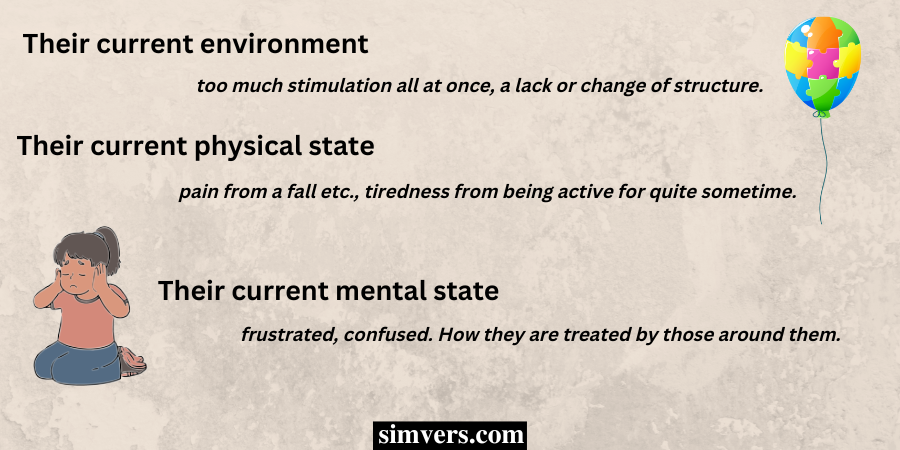
A person you know or a loved one dealing with autism can be a significant task, especially if you aren’t informed of how to deal with everyday occurrences properly. Autism can sometimes be coupled with anger, but there are ways these things can be managed and handled.
Seeking knowledge of this condition can significantly improve the everyday life of theirs and their carers. Here’s a quick overview of autism and the potential causes of anger in these individuals.
What is Autism?
Autism can generally appear before the age of three years old. Autistic people have a lot to contend with on a fairly regular basis. Verbal and non-verbal communication is impacted due to the condition, including everyday social activities.
Difficulties experienced in their everyday life can be mainly due to communication and sensory differences. However, autism is NOT a hopeless condition; it is indeed manageable.
The Common Causes/Challenges of Autism-related Anger
When these common challenges arise, they can affect those who have autism. Even the ones around them need to know how to handle common issues daily. These are the common causes that can activate angry emotions about autism disorder.
Sensory issues
Having multiple scenarios or even multi-tasking can overload their senses. It can create sensory stimulation that can trigger an emotional episode.
Social difficulties among other people
Living everyday day-to-day life can present some difficulties. Despite being intelligent in many areas, they can still struggle with having a job or keeping employment. Even maintaining relationships of any form can be significantly impacted.
They may even struggle with self-confidence and constantly seek validation and acceptance from others. When they don’t feel accepted in a group, they may become angry and experience an outburst.
Resistance to change in their routine
When they’re set in a disrupted schedule, it can trigger an outburst. Events like these are most likely a result of having their routine disrupted.
Emotional sensitivity
Behavior from other people, although harmless and light-hearted to others, can set them off. It could be things like comments made by people or being ignored. The overall interaction between other people can make them feel uncomfortable.
Communication challenges
If they are trying to articulate themselves but having difficulties doing so, it can cause an angry outburst. Their sometimes-overloaded senses can limit their self-expression.
Anxiety and depression
With their senses easily triggered, it can build up stress. These pent-up emotions can manifest in the form of anxiety and depression.
Factors that influence autism-related anger

It is essential to consider all possible influences relating to autism-related anger. These factors include:
Their Current Environment
They can be affected when they are in an environment with too much simulation, noise, and unrest. An unexpected change in the condition or state of their environment can affect them too.
Their Current Physical State
Physical activities and tasks can lead to exhaustion and irritation in autistic people. Also, falls, accidents, and other physical mishaps can trigger their anger.
Their Current Mental State
Feelings and emotions such as confusion and frustration can mess with their heads and trigger an outburst.
Blood and Brain Glucose
If glucose levels in the brain have depleted or not been converted into energy can have various adverse effects. Circumstances like this can impact their mood and behavior, leading to angry outbursts.
MORE:
- Blessed are the Poor in Spirit Meaning
- Blue Apatite Crystal
- Brain Meditation
- Can Manifesting Be Dangerous?
- Can People With Tattoos Go To Heaven?
Forms of Anger and Aggression
Anger and aggression can take on various forms. All can be a result of the built-up energy from within them. So, they can let it out in these different ways.
Temper Tantrums
- Hitting: Whether they’re hitting objects (walls, desks, etc.), themselves, or others, it’s an aggressive form of anger that needs to be kept an eye on.
- Kicking: Kicking people or objects.
- Biting: This can be dangerous for themselves or others they may attempt to bite.
- Scratching: Just as biting can be dangerous for themselves and others, they may try to scratch.
- Breaking property: Destruction of other people’s property is not only a health issue (they may hurt themselves or others) but can also be legal.
- Self-harm: If not monitored closely enough, this temper tantrum of self-harm may lead to unwanted scenarios.
Aggressive Behaviors
Aggressive behaviors can create many additional issues for someone with autism.
Their quality of life can suffer and therefore decrease. Their educational support, as well as their social support, can become limited.
Their stress levels tend to increase, and other behavior problems can escalate. Even though it sounds extreme, injury to self or others is a real possibility.
Anger Management Associated With Autism
It is necessary for you to know how to manage people with autism. This will help you understand their feelings, moods, and thought process. The following tips are helpful in managing autism-related anger and autistic persons generally:
- Due to differences in communication and sensory reception, managing their feelings must be approached in specific ways.
- Clear communication by speaking clearly and directly can decrease their frustrations and anger.
- Visual cues, scales, and charts can significantly make a difference in effectively responding.
Conclusion
Learning to live and deal with people who have been affected by autism and the various effects it comes with can be very challenging.
However, managing this set of people can be bearable and more manageable when you utilize the knowledge available on their care and help activities. With the various services and programs available, everyone affected by this condition can get the attention and care they need.
MORE:
